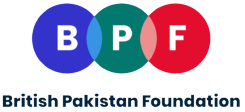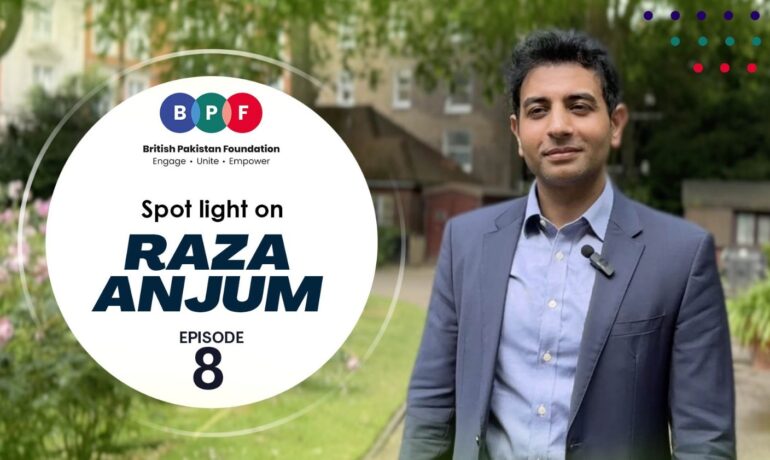Spotlight on Dr. Yarjan Abdul Samad
Dr Yarjan Abdul Samad, PhD is a Senior Research Scientist and a Teaching Fellow at Cambridge Graphene Centre, The Department of Engineering at The University of Cambridge. He is the first Space Scientist from Pakistan at the University of Cambridge. His research work is based on Space based technologies and he has won several awards for his research work. In addition to research he teaches at the University of Cambridge and mentors numerous masters and PhD students. Prior to moving abroad he obtained his bachelors degree in engineering from Ghulam Ishaq Khan Institute (GIKI) in Pakistan. Dr Yarjan Abdul Samad belongs to Buleda, a village near Turbat in Baluchistan, Pakistan and has acquired his early education from his native village. He has initiated a not for profit school in Buleda, which is based on the most successful schooling system in the world (Scandinavian Schooling system).
How did you get started in your career?

I got an interest in Science and research when I was studying for my high school degree at DJ Science College in Karachi. Later during my undergraduate studies I did a research internship at Korea Advanced Institute of Science & Technology in South Korea. This further strengthened my intention of going for a career in research. However, graduate studies and preferably a PhD seemed necessary for such a career. I started preparing for scholarship competitions while I was working full time at a Petrochemical Company, Engro Polymers and Chemicals, in Karachi. I succeeded in winning several scholarships and chose to go to Masdar Institute in Abu Dhabi which was built in collaboration with MIT, USA. I went on to finish my PhD in Engineering from what is now called Khalifa University with research work done at different parts of the world including Japan, USA and China. My research work was on composites and smart materials for a range of applications including aerospace. A renowned Professor showed interest in my profile for a research position at the University of Cambridge, where I started working on materials Space in collaboration with several European institutions and organisation including European Space Agency (ESA). I am currently working on several projects related to Space applications at Cambridge and as well as teaching and supervising graduate students.
What is a highlight of your career?
I believe that I am just at the beginning of my career and I have to achieve a lot in research in the near and far future. However, when I look back a few highlights of my career would be the research at Cambridge the development of cutting-edge cooling systems for Satellites and Spacecrafts, being one of the members of the team of Scientists who took Graphene (a modern material) to Space for the first time and being able to work alongside one of the leading scientists of the world Prof. Andrea C. Ferrari.
How do you unwind?
I am in awe of nature and its beauty. I love adventure trips, travelling, cooking, slowly reading a book and sometimes living it. They say I make good ‘Kari Pakoras’. I watch a movie when I get a good recommendation. Unlike my work, which is very scientific in nature, I like movies that are closer to nature rather than sci-fi and drama. Some of my all time favourite movies are Shawshank Redemption, Forrest Gump, Good Will Hunting, Into The Wild among others. I love poetry both reading and listening to ‘mushairas’ and would write a verse or two from time time.
What does an average workday look like to you?
Well the pre Covid19 you are asking about perhaps. It is all about research, supervision and teaching. I supervise the research works done by younger researchers and students. I deliver lectures and perform some management and admin work related to teaching and supervision. I run a weekly program at our department called as the CDT (Centre for Doctoral Training) advanced lecture series in which I invite and receive leading scientist from around the world to give us a lecture on their research work and achievements. This gives us an opportunity to build research collaborations and extend our scientific network globally.
What has been the greatest hurdle for you to overcome in your career?
I do not remember if there was any hurdle at all. There were challenges and struggles, and when I look back, none of them were unindurable. Thus the only hurdle I have faced is my own indolence. There is a very good verse of Iqbal which is related to this that there is nothing, which can be a hurdle in our manoeuvre if we have the will power:
“Jis Simat Mein Chahe Sifat-e-Seel-e-Rawan Chal
Wadi Ye Humari Hai, Woh Sehra Bhi Humara”
What is the best thing about your job?
Research, Research and Teaching. Continuous engagement in research has trained me to be an analytical thinker. And analytical thinking isn’t just required for research. All aspects of our life demand us to be critical and analytical thinkers from house chores to trade and other matters of life. Contrary to some traditional thoughts, analytical and critical thinking relaxes one’s nerves because it intrigues you to find answers, which keep you satisfied intellectually and perhaps even emotionally.
How would you describe the type of work that you do each day?
What I do everyday is to gather bits and pieces and make small contributions towards solving persistant engineering and scientific problems humanity is facing. These works include problems that we get from our industrial partners that they are facing in their factory floors, which we solve. And also bigger and more difficult challenges such as the Radiation Protection in Space, understanding behaviours of materials in Space and finding the next superconductors for enabling quantum technology.
What are your plans for the future?

As far as the research is concerned I would like to develop solutions for radiation protection of human life in Space from Cosmic and Galactic Radiations so that human life can be sustained in outer Space and spacecrafts can be sent to intergalactic Space without losing connection with them. In addition to my research work I, along with a team of dedicated volunteers, am working to develop a school at my hometown in Pakistan based upon project and problem based learning systems. I would like to extend that learning and pedagogical system to all over Pakistan for the most deserving children.





Anonymous
17th March 2021 at 2:50 am5
Anonymous
17th October 2023 at 11:42 pm4.5